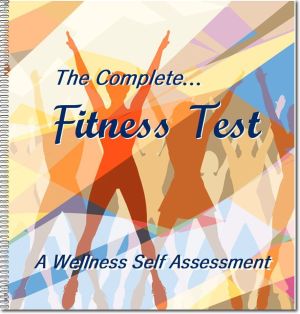The
questions
in
the
test
have
been
carefully
researched
and
verified.
Here
is
the
list
of
main
references
used
in
compiling
the
test
questions.
There
is
some
fascinating
reading
here
about
all
aspects
of
our
health
and
fitness.
1
Nutrition
1-1
James
Beckerman,
M.D.
Article:
"Eat
a
salad
every
day"
Dr.
Beckerman
is
author
of
“The
Flex
Diet:
Design-Your-Own
Weight
Loss
Plan”
(Simon
&
Schuster,
2010).
(https://healthplans.providence.org/fittogether/find-your-fit/healthy-eating/making-good-choices/turn-over-a-new-leaf-eat-a-salad-every-day/
)
1-2
Karen
Collins,
MS,
RD,
CDN,
American
Institute
for
Cancer
Research,
Article:
"More
Vegetables,
More
Colors"
Jan
11
2010
-
"Specific
goals
range
from
two
to
three
cups
of
dark
green
vegetables
and
one-and-a-half
to
two-and-a-half
cups
of
orange
vegetables
per
week.
We
could
accomplish
these
goals
by
choosing
a
half-cup
serving
of
each
almost
daily,
or
larger
servings
several
times
a
week".
1-3
Ying
Bao,
M.D.,
Sc.D.,
Study:
Association
of
Nut
Consumption
with
Total
and
Cause-Specific
Mortality
published
in
New
England
Journal
of
Medicine
(https://www.nejm.org/doi/full/10.1056/NEJMoa1307352)
1-4
Toby
Amidor,
MS,
RD,
CDN,
Article:
"Are
You
Eating
Enough
Fish?"
Sept.
4,
2015
"I
believe
in
food
first,
which
means
eating
fish
about
twice
a
week".
(https://health.usnews.com/health-news/blogs/eat-run/2015/09/04/are-you-eating-enough-fish)
1-5
a)
The
American
Cancer
Institute,
Article:
"Recommendations
for
Cancer
Prevention"
Suggests
avoiding
processed
meat
and
limiting
red
meat
to
no
more
than
18
ounces
per
week.
Based
on a
4-ounce
serving,
these
weekly
recommendations
translate
into
eating
a
maximum
of
4-5
servings
weekly.
https://www.aicr.org/reduce-your-cancer-risk/recommendations-for-cancer-prevention/recommendations_05_red_meat.html?_ga=1.47099361.775236235.1478867660
b)
Mayo
Clinic
Staff,
Article
"Meatless
meals:
The
benefits
of
eating
less
meat"
https://www.mayoclinic.org/healthy-lifestyle/nutrition-and-healthy-eating/in-depth/meatless-meals/art-20048193?pg=2
1-6
Mayo
Clinic
Staff,
Article:
"
Water:
How
much
should
you
drink
every
day?
"
https://www.mayoclinic.org/healthy-lifestyle/nutrition-and-healthy-eating/in-depth/water/art-20044256
1-7
Lorien
E.
Urban,
PHD,
Study:
"Energy
Contents
of
Frequently
Ordered
Restaurant
Meals..."
April
2016
https://www.andjrnl.org/article/S2212-2672(15)01736-0/abstract
1-8
Rachel
K.
Johnson,
PhD,
et
al,
Study:
Dietary
"Sugars
Intake
and
Cardiovascular
Health"
A
Scientific
Statement
From
the
American
Heart
Association.
Sept.
15,
2009
https://circ.ahajournals.org/content/circulationaha/120/11/1011.full.pdf
(Download
PDF)
This
report
recommends
no
more
than
100
calories
per
day
(6
teaspoons
or
24
grams)
of
added
sugars
for
women
and
no
more
than
150
calories
per
day
(9
teaspoons
or
36
grams)
for
men.
2
Fitness
2-1
The
AHA
recommends
at
least
30
minutes
of
moderate-intensity
aerobic
activity
at
least
5
days
per
week
for
a
total
of
150
minutes
American
Heart
Association,
Article:
"Recommendations
for
Physical
Activity
in
Adults"
February
2014
https://www.heart.org/HEARTORG/HealthyLiving/PhysicalActivity/FitnessBasics/American-Heart-Association-Recommendations-for-Physical-Activity-in-Adults_UCM_307976_Article.jsp#.WDdHuZWv7v8
2-2
a)
Neville
Owen,
PhD
et
al.
"Sedentary
Behavior:
Emerging
Evidence
for
a
New
Health
Risk"
2010
https://www.ncbi.nlm.nih.gov/pmc/articles/PMC2996155/
b)
James
A.
Levine,
M.D.,
Ph.D.
Article:
"What
are
the
risks
of
sitting
too
much?"
https://www.mayoclinic.org/healthy-lifestyle/adult-health/expert-answers/sitting/faq-20058005
3.
Stress
Level
3-1
a)
American
Psychological
Association:
"Stress"
https://www.apa.org/topics/stress/
b)
WebMD
Article:
"Stress
Management
-
Causes
of
Stress"
https://www.webmd.com/balance/stress-management/stress-management-causes-of-stress
c)
Brian
Luke
Seaward,
PhD,
"
Essentials
of
Managing
Stress,
Third
Edition",
2014,ISBN-13:
9781449698027
3-2
Anxiety
and
Depression
Association
of
America,
Article:
"Stress
and
Anxiety
Interfere
With
Sleep"
https://www.adaa.org/understanding-anxiety/related-illnesses/other-related-conditions/stress/stress-and-anxiety-interfere
3-3
Mayo
Clinic
Staff,
Article
"Exercise
and
stress:
Get
moving
to
manage
stress"
https://www.mayoclinic.org/healthy-lifestyle/stress-management/in-depth/exercise-and-stress/art-20044469
4
General
health
4-1
While
there
is
no
conclusive
evidence
that
a
strong
immune
system
can
help
ward
off
the
common
cold,
when
it
comes
to
the
flu'
your
immune
system
can
definitely
make
a
difference.
a) The Dana Sourcebook of Immunology, "The Immune System’s Role in Protection" January, 2006
b) Here's an interesting article on the immune system
Harvard
Health
Publications,
"How
to
boost
your
immune
system
-Tips
to
fight
disease
and
strengthen
immunity"
September
2014,
Updated:
June
15,
2016
https://www.health.harvard.edu/staying-healthy/how-to-boost-your-immune-system
4-2
Healthline
-
Kati
Blake
and
George
Krucik,
MD,
MBA,
Article:
"What
causes
loss
of
appetite?
160
possible
conditions",
2012
https://www.healthline.com/symptom/loss-of-appetite
4-3
Being
overweight
is
usually
associated
with
present
or
future
health
problems,
but
this
may
not
always
be
the
case...
Patrick
J.
Skerrett,
Former
Executive
Editor
-Harvard
Health,
Article:
"Overweight
and
healthy:
the
concept
of
metabolically
healthy
obesity"
https://www.health.harvard.edu/blog/overweight-and-healthy-the-concept-of-metabolically-healthy-obesity-201309246697
5
Brain
Health
5-1
Fortanesce,
Website:
"Test
Your
Real
Brain
Age"
https://www.terrysmall.com/blog/brain-bulletin-44-your-real-brain-age-take-the-test-
5-2
See
the
note
on
fish
Oil
supplements
in
Section
1 -
Nutrition
ref:
https://nccih.nih.gov/health/omega3/introduction.htm
5-3
Mayo
Clinic
- 5
tips
to
keep
your
brain
healthy
https://www.mayoclinichealthsystem.org/hometown-health/speaking-of-health/5-tips-to-keep-your-brain-healthy
Close Window
